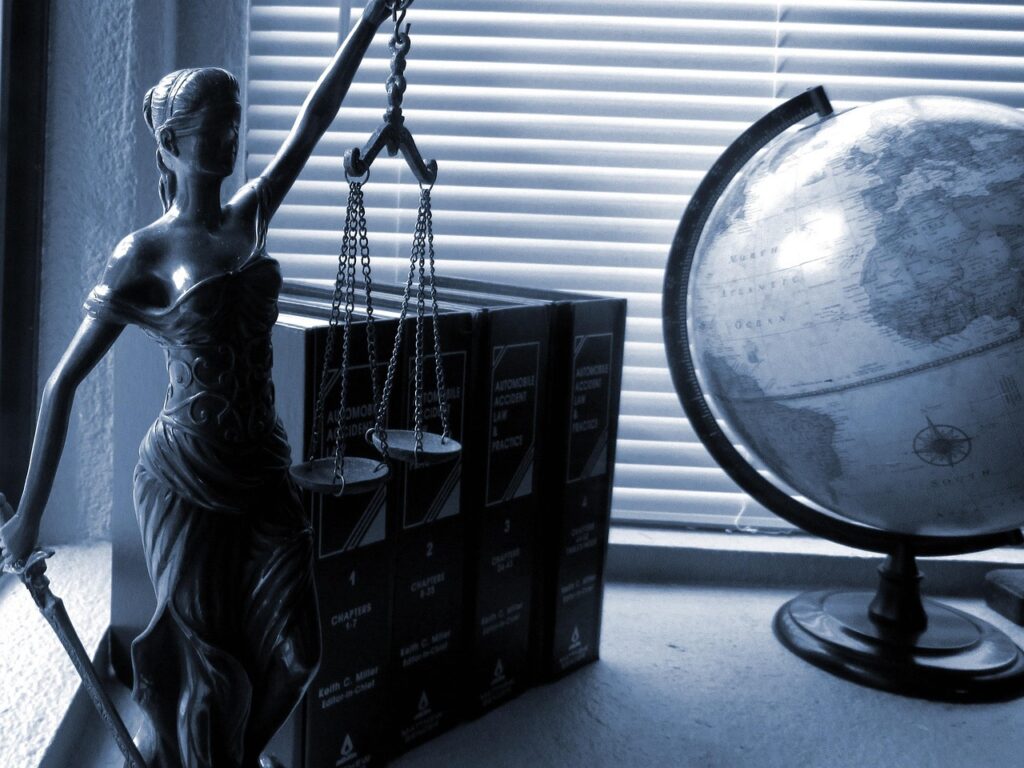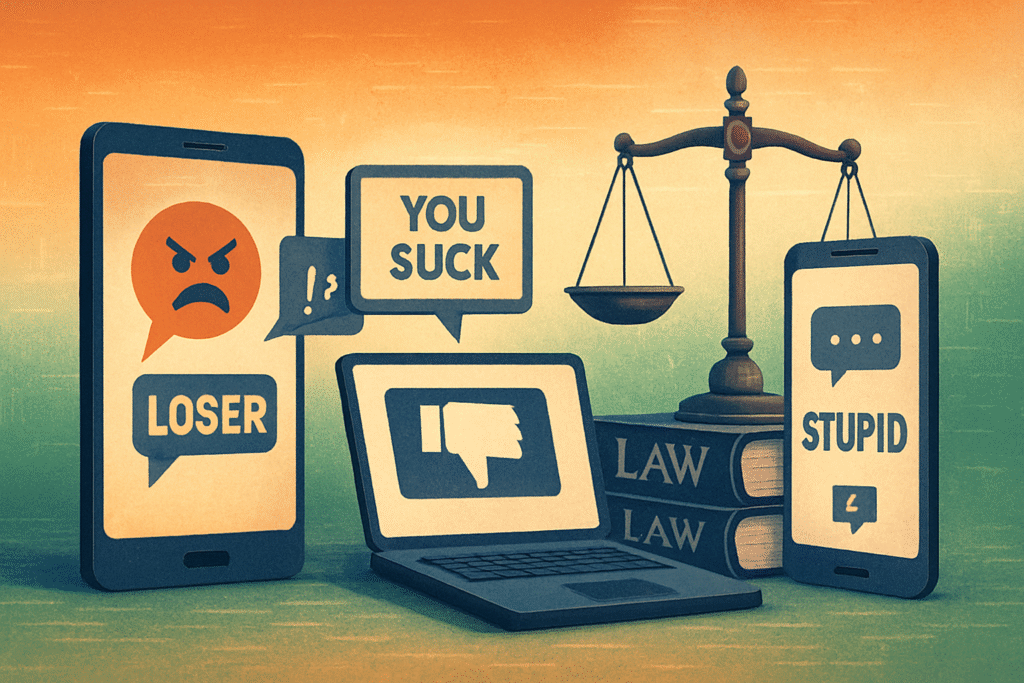Published on 24th August 2025
Authored By: Arihant Chatterjee
Sister Nivedita University, Newtown, Kolkata, West Bengal
|
Case Name |
Vikas Kumar UPSC V. Union of India 2021
|
|
Citation |
[2021] 12 S.C.R. 311 |
|
Court |
Supreme Court of India |
|
Date of Judgement |
11 February 2021 |
|
Petitioner |
Vikas Kumar |
|
Respondent |
Union Public Service Commission and others |
|
Bench |
Justice DY Chandrachud, Justice Indira Banerjee, Justice Sanjiv Khanna |
Introduction [1]
In Vikas Kumar V. Union of India 2021, the rights of a disabled community have been obstructed by the public authorities and their complaints are unheard. A citizen belonging to this community has approached the Supreme Court as he was refused to scribe in the civil services examination. This community is discriminated against without their voices being heard and their pursuit of dignity remains unsolved. While there may be sets of laws, rules, acts this case evokes fundamental questions regarding the fulfilment of the pressing need of making stringent regulations on it and giving equal opportunity and access to the disabled. It requires introspection of the laws and the paths ahead of fulfilling the rights of the disabled.
Facts[2]
- In this case the petitioner Vikas Kumar, who was a candidate for civil services, suffered from a neurological condition called “Dysgraphia,” or ‘writer’s cramp.’ Due to this, on applying for the 2017 UPSC exam, he proclaimed himself to be an individual with locomotor disability and was, in turn, given a scribe to write for him during the written test by the UPSC. In 2018, in a notice, The Department of Personnel and Training released the CSE 2018 Rules, specifying the way of conducting the examination and allowing only those candidates who fall under the categories of: Blindness, Locomotor Disability, and Cerebral Palsy having minimum 40% impairment to utilize the facility of a scribe. While seeking for admission in the Civil Services Exam 2018.
- The appellant thus certified himself as a person with disability of over 40% and asked UPSC to provide him with a scribe for the examination. UPSC rejected his request on the grounds that he was not entitled to it as per the prescribed criteria in the CSE Rules 2018.
- The applicant was first rejected the certificate of disability by the respective authority in Ram Manohar Lohia Hospital, Delhi, who also claimed that the percentage of disability was less than 6%. Disappointed by the Central Administrative Tribunal, which rejected the application of the applicant and was also confirmed by the High Court, the petitioner sought a ray of hope at the door of the Supreme Court. As per the order given by the Supreme Court, the petitioner was medically examined by AIIMS, and on the basis of the report, the medical practitioner concluded that the petitioner was suffering from the aforesaid neurological disorder but his disability did not fall within the scope of “Benchmark Disability” as envisaged under the Rights of Persons with Disability Act,
Issues Involved in the case [3]
The key issues involved in this case are as follows:
- Scope of reasonable Accommodation: The lawsuit resented the restrictive interpretation of reasonable accommodations by the Rights of Persons with Disabilities Act of 2016 (RPWD Act). It was argued by the petitioners that disabled people’s diverse needs were not exactly catered to by the RPWD Act as it was focused on benchmark disabilities.
- Recognition of Writer’s Cramp as a Disability: The case challenged Writer’s Cramp (dysgraphia absence)’s exclusion from the list of impairments officially recognized under the RPWD Act. The petitioners asserted they were entitled to a reasonable accommodation because Writer’s Cramp immensely impaired their functioning to write.
- Denial of Scribe to Writer’s Cramp: The UPSC’s refusal to grant Vikash Kumar a scribe based on the premise that Writer’s Cramp is not a recognized handicap was the controversy in the case. The petitioners argued that their right of equal opportunity and participation was infringed upon by such denial.
- Burden of Proof: The UPSC’s insistence on the individuals with disabilities to establish that they need a reasonable accommodation was challenged in this case. The petitioners argued that this shifted the burden of proof for inclusion from the institution to the individual.
- Fear of Misuse and Exclusion: The concern addressed the UPSC’s apprehension that granting individuals with disabilities other than those on the Benchmark may lead to exploitation. The petitioners argued that this fear was unfounded and that a marginalized minority must not be precluded from a reasonable accommodation for such a reason.
- Inclusive Frameworks: The argument illustrated how vital it is that there are inclusive frameworks which allow individuals with impairments to achieve their full potential. The petitioners advocated for a more encompassing approach to disability rights that considered every individual’s specific needs.
- Effect on Future Cases: For future cases dealing with reasonable accommodations and rights of individuals with disabilities, the case has set a precedent. It has enhanced individuals’ capacity to lawfully request the accommodations they require in numerous situations.
Contentions from the Petitioner’s side [4]
The contentions from the petitioner’s side are listed as follows:
- The counsel for the Petitioner contended that the Petitioner is covered under Section 2(s) of the RPWD Act, 2016, i.e., the definition of “Person with a Disability”. As defined under the RPWD Act, 2016, “person with a disability” means “a person with long-term physical, mental, intellectual or sensory impairment which, in interaction with barriers, hinders his full and effective participation in society equally with others”.
- The Counsel of the Petitioner, Learned, had to establish before the judges that the Writer’s Cramp or Dysgraphia is a physical disability. The Learned counsel established it by basing on the reference given in the mention of the Schedule of the RPWD Act, 2016. Schedule Section 2(a) states a list that includes disabilities referred to as “Specific Learning Disability,” and in that list, the name “Dysgraphia” is mentioned.
- The Petitioner’s lawyer brought forth the case that the CSE Rules of 2018 are contravening Section 20 of the RPWD Act, 2016 since it did not provide “Reasonable accommodation” to physically disabled applicants. Blind, Locomotion disabled, cerebral palsy, and possessing above 40% physical disability are the only ones who can avail the facility of a scribe. This also does not provide accommodation to those physically disabled but falling outside the exemptions provided by the CSE 2018 rules.
- Petitioner’s Senior Advocate further argued that CSE Rules 2018 are breaching Article 14 and Article 16(1) of the Indian Constitution because the rules are offering scribes to certain physically disabled individuals.
Contentions from the Respondent’s side[5]
The contentions from the respondent’s side are listed as follows:
- The Learned counsel of the Respondent testified that an individual with disabilities aside from the benchmark prescribed must substantiate it with the presentation of a medical certificate issued by a Chief Medical Officer (CMO) of a Government Healthcare Institution. The Medical certificate should also specifically state the disability of the applicant and recommend a requirement of a scribe. The Petitioner in this case presented himself as a benchmark candidate, failing to present the said certificate.
- The Learned counsel of the Respondent expressed the view that the Ministry of Social Justice and Empowerment (MSJE) was of the view that Writer’s Cramp or Dysgraphia is not a disability. Nevertheless, certainly, it does result in interference in writing. In such situations, the examining authority has chosen to grant compensatory time to establish a level playing field fairly.
- The Respondent’s senior counsel expressed the opinion that Writer’s cramp is not covered under the Schedule of the RPWD act.
- The Respondent’s Attorney argues that the Civil Service Examination is the most competitive exam in the nation, and the board is required to give a fair playing ground for everyone. A candidate who does not require a scribe will gain an unfair advantage over the rest of them if rules on the accommodation of scribes become less strict.
Court’s Findings [6]
The Supreme Court noted that the case evokes certain fundamental issues concerning the real realization of equal opportunity and access by the differently-abled and their ongoing quest for dignity. As part of the litigation, the Supreme Court ordered the AIIMS to set up a medical board and assess the condition of the petitioner and render expert opinion regarding the following question:
1) Is the appellant a ‘person of a disability under section 2(s) of the Rights of Persons with Disabilities Act, 2016 (hereinafter ‘the act’)
2) What is the degree of the appellant’s disability?
3) Does his disability satisfy the benchmark disability under section 2(r) and section 2(zc) of the act?
The board opined that the petitioner’s disability is a “chronic neurological condition” by the name bilateral Writer’s Cramp. Petitioner may be described as a ‘person with a disability under the Rights of Persons with Disabilities act, 2016 with the percentage of disability being 6%. This is not in accordance with the “benchmark disability.” AIIMS report mentioned that the appellant is afflicted with a notified disability referred to in entry IV of the Schedule to the act.
Judgement delivered by the Court [7]
The Hon’ble Supreme Court granted the appeal and dismissed the challenged judgment and order of the Delhi High Court. The petitioner was allowed to use the facility of a scribe in order to attempt the Civil Services Examination or any competitive choice test directed by the government’s power. The Ministry of Social Justice and Empowerment was asked to see that proper guidelines are set forth to control and provide scribe facilities for persons with disability within three months from receiving the certified copy of this judgment. All this must be done in consultation with the public at large, particularly with the differently-abled and their representative organizations.
Conclusion
- The Supreme Court ruling in Vikash Kumar UPSC V. Union of India 2021, (“Vikash Kumar”) that a person with dysgraphia or writer’s cramp is eligible for a scribe in the Civil Services Examination (CSE) is an important step to reaffirm the place of persons with disabilities as rights bearers. The Court added that the government must divorce itself of its “fundamental fallacy” that only individuals with a certain disability of 40 per cent or more deserve a scribe while sitting for examinations like the Civil Services Examination. The lead bench of Justice DY Chandrachud held that this whim of a requirement categorically offended the clear terms and purpose of the Rights of Persons with Disabilities Act (RPWD) Act, 2016.[8]
- The Supreme Court has adopted the wider outlook of the case and not allowed them anchored to the letters of the law which further provides the enhance the judicial outlook in favour of the rights of the disable community and entitle them for the protection of the authorities of the government.[9]
References
[1] Vikash Kumar V – case analysis, Studocu.com https://www.studocu.com/in/document/shambhunath-institute-of-law/bachelor-in-law/vikash-kumar-v-case-analysis/85652702 ( last visited 28 June, 2025).
[2] Anuruddha Chauhan, Vikas Kumar V. Union Public Service Commission & Others, https://legalvidhiya.com/vikas-kumar-v-union-public-service-commission-others-2/?amp=1
(last visited June 28, 2025).
[3] Amrisha Trivedi, “Vikash Kumar v. Union Public Service Commission & Ors. (2021),” The Amikus Qriae (2021), https://theamikusqriae.com/vikash-kumar-v-union-public-service-commission-ors-2021/ (last visited June 28, 2025).
[4] Ganesh Nair J, ‘Vikash Kumar vs Union Public Service Commission’ (Jus Corpus, 11 March 2021) https://www.juscorpus.com/vikash-kumar-vs-union-public-service-commission/
(last visited 28 June, 2025).
[5] Ganesh Nair J, ‘Vikash Kumar vs Union Public Service Commission’ (Jus Corpus, 11 March 2021) https://www.juscorpus.com/vikash-kumar-vs-union-public-service-commission/
(last visited 28 June, 2025).
[6] Manav, “Critical Analysis: Vikash Kumar v. Union Public Service Commission,” 1 J. Legal Rsch. & Juridical Sci. 323 (2022), https://jlrjs.com/wp-content/uploads/2022/05/46.-MANAV.pdf (last visited 28 June, 2025).
[7] Manav, “Critical Analysis: Vikash Kumar v. Union Public Service Commission,” 1 J. Legal Rsch. & Juridical Sci. 323 (2022), https://jlrjs.com/wp-content/uploads/2022/05/46.-MANAV.pdf (last visited 28 June, 2025).
[8] Goyal, K. & Dodani, Y., 2021. Why Vikash Kumar judgement is an important step forward for people with disabilities. The Indian Express, 22 March. https://indianexpress.com/article/opinion/why-vikash-kumar-judgement-is-an-important-step-forward-for-people-with-disabilities-7268625/lite/ (last visited 28 June 2025).
[9] Vikash Kumar V – case analysis, Studocu.com https://www.studocu.com/in/document/shambhunath-institute-of-law/bachelor-in-law/vikash-kumar-v-case-analysis/85652702 ( last visited 28 June, 2025).




